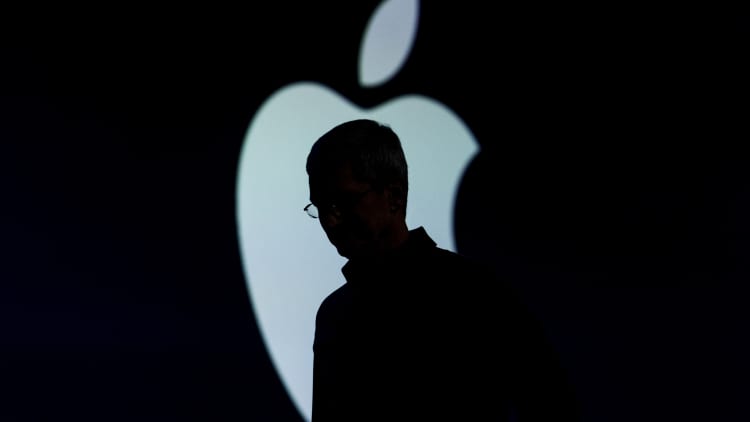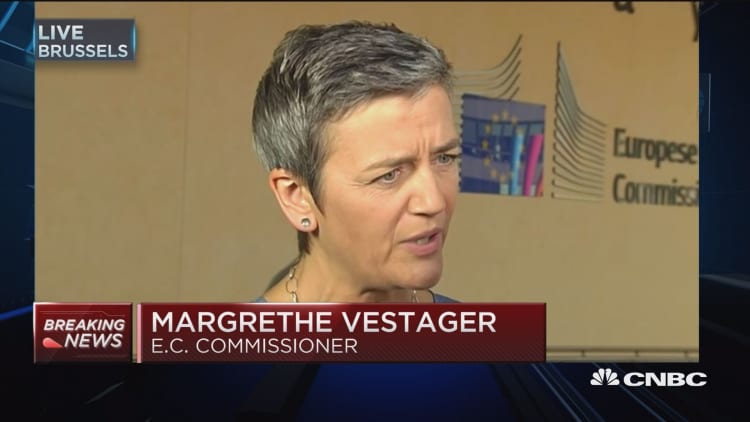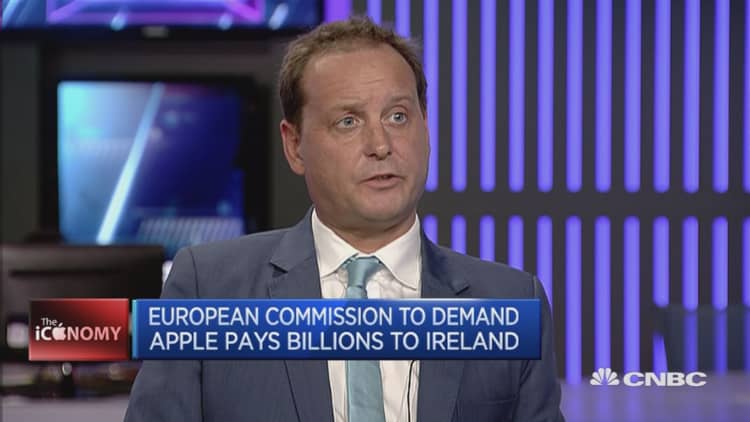



The European Commission on Tuesday ordered the Irish government to recover up to 13 billion euros ($14.5 billion) — plus interest — in back taxes from Apple.
The executive arm of the European Union concluded that Ireland granted undue tax benefits to the U.S. tech giant, which is illegal under EU state aid rules, allowing Apple to pay an effective corporate tax rate of 1 per cent on its European profits in 2003 down to 0.005 per cent in 2014. It is also continuing to investigate Amazon and McDonald's European tax affairs, EU Commissioner Margrethe Vestager told reporters.
"If my effective tax rate was 0.05 percent, then falling to 0.005 percent, I would have the feeling that maybe I should have a second look at my tax bill," Vestager said in a rebuke to the iPhone maker, one of the world's biggest companies.
"We're sending a message to any taxpayer in Europe: This is a wonderful place to do business and invest, but you have to play by the rules," she told CNBC.
In premarket trading, Apple's stock was down 1 percent.
The ruling, which will be contested by Apple and the Irish government, may threaten Ireland's ability to attract investment from global companies eager to limit their tax bill on overseas earnings.
The U.S. government also expressed "disappointment" at the result, which has become a touchstone for concerns about U.S. multinationals keeping foreign profits offshore.
"We believe that retroactive tax assessments by the Commission are unfair, contrary to well-established legal principles, and call into question the tax rules of individual Member States," a Treasury spokesman said in a statement.
"This is not a penalty, this is unpaid taxes being paid," said Vestager, who heads competition policy at the EC.
"It's in the treaty that every member state apply their own tax rate. But Apple is very, very far away from Ireland's 12.5 percent rate."
She spoke of the "so-called head office" of Apple in Ireland and added that there was "no factual or economic justification" for the deal.
The European Commission accused Ireland in 2014 of dodging international tax rules by letting Apple shelter profits worth tens of billions of dollars from tax collectors in return for maintaining jobs. Apple and Ireland rejected the accusation and have both said they will appeal any adverse ruling.
In a statement Tuesday, Apple said it would contest the ruling and it was "confident" the decision would be overturned.
"The Commission's case is not about how much Apple pays in taxes, it's about which government collects the money. It will have a profound and harmful effect on investment and job creation in Europe," Apple said.
Apple was one of the first U.S. companies to relocate much of its earnings in Ireland, allowing the company to pay a much lower corporate tax rate in some years — as low as 2 percent, compared with 35 percent in the U.S.
Even though Apple first relocated its overseas operations to Ireland in 1980, the tax arrangement is the result of a meeting between Apple and Irish officials in 1991, which set up the company's tax arrangements with the country until 2007.
What are technology stocks doing? Track the sector here.


